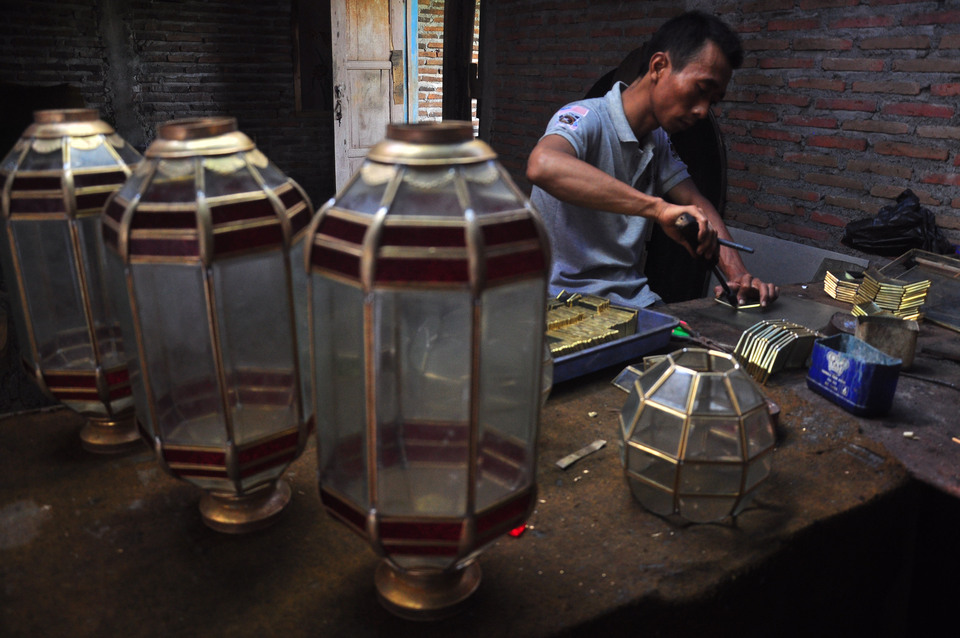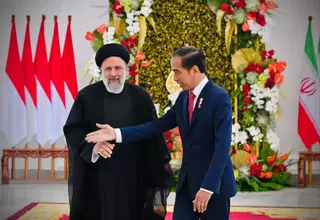Bleak WEF Report Prompts Indonesian Vows to Boost Talent Pool

Jakarta. The Indonesian government has vowed to improve the country’s education system following the presentation of a report showing that Southeast Asia's largest economy has one of the region's least attractive pools of human capital.
Indonesia lags behind most of its neighboring countries in human capital development, ranking 69th out of 124 countries, according to the World Economic Forum's Human Capital Report 2015, which was published on Thursday.
The report "provides comprehensive information on the talent base in each country, including information on education levels of the employed, unemployed and the inactive members of the population as well as the specific qualifications of the latest entrants to the workforce," a statement on the WEF website says.
The report is based on an index that takes a life-course approach to human capital, evaluating the levels of education, skills and employment available to people in five distinct age groups: under 15, 15-24, 25-54, 55-65 and above 65.
Singapore, Philippines, Malaysia, Thailand and Vietnam rank 24th, 46th, 52nd, 57th, and 59th, respectively. China placed at 64th while India takes the 100th place.
In the region, Indonesia only performs better than Cambodia (97th), Laos (105th) and Myanmar (112th).
'Healthy, young and skillful'
Reyna Usman, director general of labor placement and advisory at the Ministry of Manpower, however remains upbeat, telling GlobeAsia that President Joko Widodo's administration sees big potential in the nation's youth.
"We have a big population and large number of youths, which is not the case for other countries, including our neighboring countries in Southeast Asia. Our country's top asset lies in our big population," she said in a telephone conversation.
Indonesia's employment-to-population ratio stands at 63.5 percent with an unemployment rate of 6.2 percent. Data from Central Statistic Agency (BPS) shows that Indonesia's labor force as of February stood at 128.3 million people.
Even though Indonesia ranks lower than other key Southeast Asian countries, Reyna said that the government is optimistic Indonesian workers can compete once the Asean Economic Community is launched at the end of this year.
The government, she said, is focusing on the development of the youth to raise Indonesia's competitiveness. "We will increase the equality of our citizens' education, as well as their skills. We will urge all stakeholders to enhance vocational training especially for the young citizens so they have more to offer.”
“They are healthy, young, and skillful," Reyna said, adding that Indonesia must not only become a market but that it can also offer skilled workers.
School performance
Earlier this week, Indonesia was reported to have placed in the bottom ten in a the biggest-ever school rankings compiled by the Organization for Economic Cooperation and Development, which saw other Asian nations make up the entire top 5 of best performers.
A BBC report on the rankings, which are set to be formally presented at the World Education Forum in South Korea next week, shows Singaporean 15-year-0lds lead the world in knowledge of mathematics and science, followed by Hong Kong, South Korea, Japan and Taiwan.
A total of 76 countries were included in the survey, said to be much more comprehensive than the OECD’s PISA tests, which also saw Indonesia perform poorly.
In the latest amalgamated rankings, Indonesia is placed 69th, just ahead of Botswana, Peru and Oman. Neighboring Malaysia is ranked 52nd and Thailand is placed 47th.
'I am sure we can compete'
The WEF report reveals that Indonesia performs best in the under-15 age group, where it ranks 47th. Indonesia's worst performance, compared to other nations, is in the over-65 group, where it ranks 92 out of 124 countries due to low secondary and tertiary education enrollment.
Shinta Widjaja Kamdani, chairwoman of the international relations and investment division at the Indonesian Employers' Association (Apindo), said that all stakeholders have acknowledged that a lot has to be done to boost Indonesia's talent pool.
"Human capital has been one of our issues for a long time," she told GlobeAsia. "But it is not only the government's job: all stakeholders, like the business and education sectors, must work hand in hand to help enhance Indonesian education levels, from basic to advanced, along with skill development."
Shinta, who is also the chief executive officer at real estate agency Sintesa Group, said that despite having a lot of work to do, Indonesia must be optimistic that its people have the competitiveness to help the country grow, especially once the AEC has come into force.
"It takes strong commitment but I don't want to be pessimistic. I am sure we can compete with other countries," she said, adding that Apindo has training centers that can help companies develop their human capital.
Europe leads the way
The WEF report, which is the culmination of a study begun in 2013, measured countries' success in nurturing, developing and deploying their greatest assets: people. The report takes a snapshot of factors contributing to the development of a healthy, educated and productive labor force in a country.
The report says that a nation's human capital endowment — the skills and capacities that reside in people and that are put to productive use — can be a more important determinant of its long term economic success than virtually any other resource.
Finland claims the top place globally, followed by Norway and Switzerland, while Japan, which ranks 5th globally, leads the Asia-Pacific region, ahead of New Zealand (9th) and Australia (13th).
Eleven out of the top 15 nations in the report are European.
People-centric model of growth
Saadia Zahidi, head of the employment, skills and human capital initiative at the WEF, and a co-author of the report, said that the findings should support business leaders, policy-makers, civil society group and the public at large in taking informed, data-driven decisions that are needed to unlock human potential all over the world.
"The index shows that all countries — both rich and poor — have yet to optimize their human capital and calls for a new people-centric model of growth,” Zahidi said in a separate statement.
Julio A. Portalatin, president and chief executive officer of global consulting firm Mercer — which took part in the research — said that the index is a critical tool for employers operating across borders.
“It allows them to determine the most pressing issues impacting talent availability and suitability around the world today and identify those issues that have the potential to impact business success in the future — invaluable insight for guiding the allocation of workforce development and investments,” he said.
GlobeAsia
Tags: Keywords:POPULAR READS
Apple Wants to Increase Investments in Vietnam
Vietnam has become more important to Apple as the company seeks to diversify its supply chains away from China.China’s Top Diplomat Wang Yi to Visit Indonesia for Cooperation Talks
Chinese top diplomat Wang Yi will chair a policy coordination meeting aimed at strengthening Indonesia-China cooperation.President Jokowi Urges Global Restraint as Tensions Rise in the Middle East
President Joko "Jokowi" Widodo emphasized the importance of diplomatic efforts to prevent the escalation of conflict in the Middle EastKPK Identifies Sidoarjo Regent as Suspect in Corruption Probe
KPK has identified Ahmad Muhdlor Ali as a suspect in a corruption case involving the Sidoarjo Regional Tax Service AgencyEconomic Concerns Overshadow Security Worries for Indonesians in Iran
Indonesian citizens currently in Iran are more concerned about rising inflation than the security situation in the country.Popular Tag
Most Popular






















